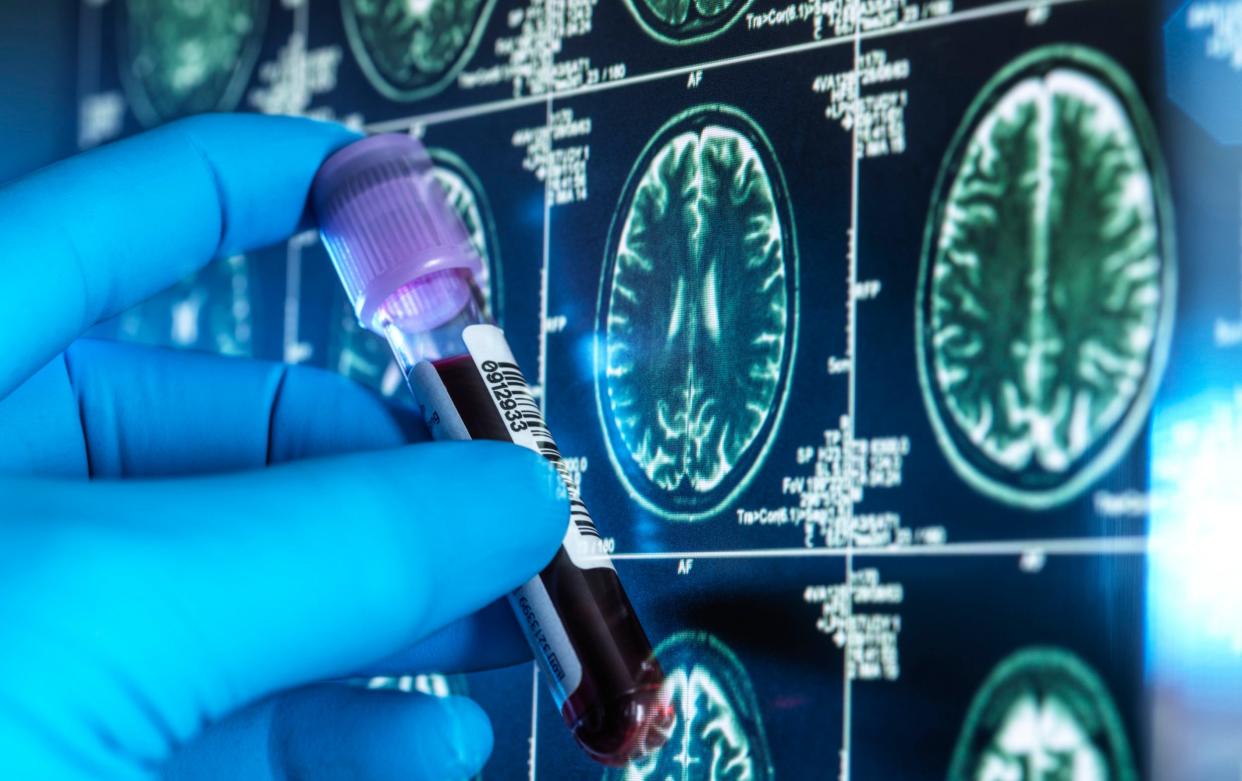Blood test may spot Alzheimer’s 10 to 15 years before symptoms show

A blood test that detects Alzheimer’s 10 to 15 years before a patient shows symptoms could be made available on the NHS within a year.
Previous studies have shown the test, which measures levels of a protein in the blood called p-tau217, is cheaper, easier and at least as accurate as the current diagnosis options.
The protein is a sign of disease in the brain caused when tau starts to attack neurons.
This can occur up to 15 years before symptoms such as forgetfulness and cognitive decline start.
The Dementia Research Institute at University College London, which can receive samples from anywhere in the country, says it has capacity to analyse 100,000 a year.
UCL researchers just have to complete a formal “validation process” for regulators, but they are confident this will be successfully finished by June next year, and believe it could be concluded in seven months.
One in three people living with dementia in England and Wales don’t have a diagnosis, even though it is the country’s biggest killer, with about 900,000 cases in the UK.
More than one million people are expected to be living with Alzheimer’s or dementia in Britain by 2030 and it is hoped that early treatment could make it easier to tackle symptoms.

Testing through blood samples – which can cost as little as £20-£100 – will lead to many more people being diagnosed with Alzheimer’s earlier.
There are two other expensive tests for Alzheimer’s, PET scans and spinal fluid tests, which are rarely deployed and waiting lists are long.
PET brain scans are not routine and cost up to £3,000, while unpleasant lumbar puncture tests which take fluid from the spine, cost £250-£300, and are unsuitable for some people as well as having possible side effects.
Only two per cent of the people having their mental ability tested at memory assessment clinics are receiving PET scans or lumbar punctures.
In a small number of cases, the new blood test could also reveal genetic cases of Alzheimer’s where no external symptoms at all are yet apparent and a hereditary strain has not yet been proven in the family.
Dr Ashvini Keshavan, a senior clinical research fellow at UCL and honorary consultant neurologist at the National Hospital for Neurology and Neurosurgery, said: “Blood tests will be up and running in our clinical schedule within 12 months – of that I’m fairly confident.
“Twelve months is a conservative estimate, it could be by the end of this year.
“We have started the validation, so we know the outlook of what we have to do is going to fit well within the 12 months.”
Dr Keshavan added: “The first stage is to bring it into the NHS – it’s what we’ve been funded to do – within the next 12 months.”
The final validation procedure before the blood tests are available in the NHS looks at technical issues, such as if a remote location did not have facilities to store a sample at the optimum cold temperature.
There are also plans to send cheaper blood test cards to people’s homes for them to provide samples themselves.
Prof Jonathan Schott, the chief medical officer at Alzheimer’s Research UK, said: “If, as we hope, new treatments that can slow down Alzheimer’s disease become available soon, then blood tests will be vital.”
An NHS England spokesperson said: “Blood-based biomarker testing is an exciting area of innovation.”

 Yahoo News
Yahoo News 